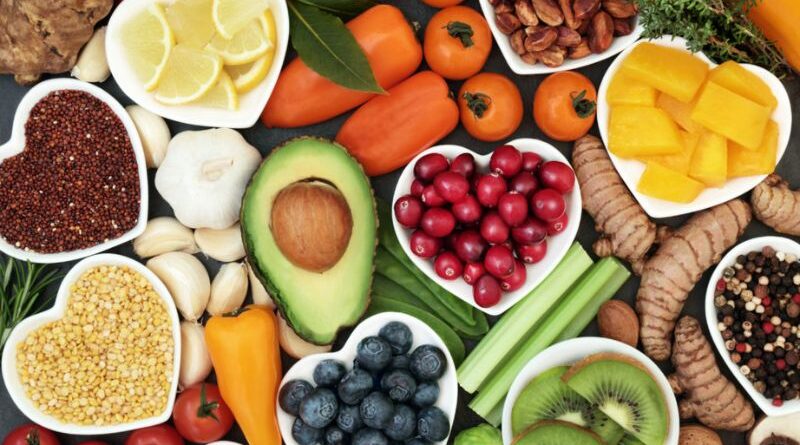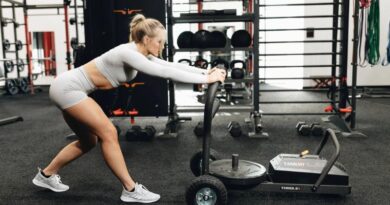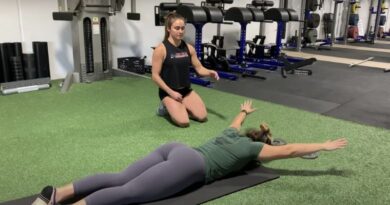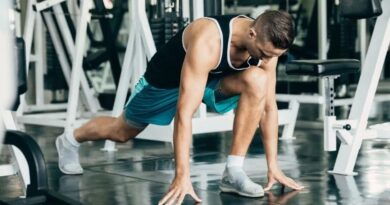Top Athlete Nutrition Tips – In the realm of athletic performance, nutrition stands as a fundamental pillar influencing an athlete’s prowess and endurance. The significance of what an athlete consumes cannot be overstated, as it directly impacts energy levels, recovery, and overall well-being. This guide distills essential nutrition tips for top athletes, aiming to optimize their training and competitive edge. From pre-workout fueling to post-exercise recovery, hydration strategies, and personalized nutrition plans, this outline navigates the diverse facets of athlete nutrition. Acknowledging the individualized nature of dietary needs, it emphasizes the balance of macronutrients, hydration, and the role of supplements. The journey towards peak performance commences with a profound understanding of how nutritional choices can be harnessed to unleash an athlete’s full potential.
Top Athlete Nutrition Tips
Stay Hydrated.

Stay hydrated by drinking water regularly throughout the day. For athletes, maintaining proper hydration is crucial for optimal performance and recovery. Aim to consume an adequate amount of water before, during, and after exercise. Consider electrolyte-rich beverages, especially during intense workouts, to replenish essential minerals lost through sweat. Dehydration can negatively impact endurance, focus, and overall well-being. Pay attention to individual fluid needs, climate conditions, and exercise intensity, adjusting water intake accordingly. Proper hydration supports bodily functions, aids digestion, and helps regulate body temperature, ensuring peak athletic performance.
Also, Read – The 7 Best Core Exercises for All Fitness Levels
Balanced Diet
Maintain peak performance with a balanced diet that includes a variety of nutrients. Prioritize whole foods like fruits, vegetables, lean proteins, whole grains, and nuts. Ensure a sufficient intake of carbohydrates for energy, proteins for muscle repair, and healthy fats for overall well-being. Embrace diversity in your food choices to obtain essential vitamins and minerals crucial for optimal functioning. Moderation is key, avoiding excessive processed foods, sugars, and unhealthy fats. Individualize your diet based on activity level, age, and personal goals. A balanced diet supports immune function, enhances recovery, and contributes to sustained energy levels for athletes and individuals alike.
Carbohydrate Loading
Optimize endurance with strategic carbohydrate loading before endurance events. In the days leading up to the competition, increase your carbohydrate intake to maximize glycogen stores in muscles. Focus on complex carbohydrates like whole grains, pasta, rice, and potatoes. Taper down training intensity while elevating carbohydrate consumption to allow for glycogen storage. Aim for 7-10 grams of carbohydrates per kilogram of body weight during the loading phase. Stay well-hydrated throughout. On the event day, maintain a balanced intake of carbohydrates to sustain energy levels. Carbohydrate loading enhances endurance and delays fatigue, benefiting athletes engaged in prolonged, intense activities like marathons or long-distance cycling.
Protein Intake
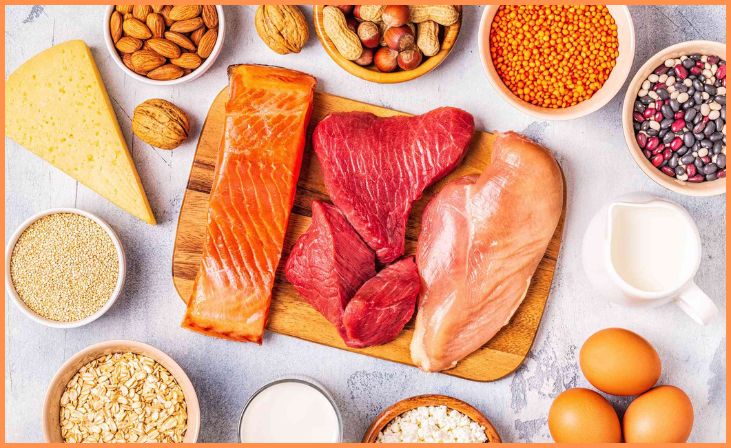
Support muscle repair and growth by ensuring an adequate protein intake in your diet. Include lean meats, fish, eggs, dairy, legumes, and plant-based alternatives. Distribute protein consumption evenly across meals to optimize its utilization by the body. Aim for approximately 1.2 to 2.2 grams of protein per kilogram of body weight, adjusting based on activity level and individual goals. Prioritize high-quality protein sources rich in essential amino acids. Consuming protein within 30 minutes post-exercise enhances recovery. Balancing protein intake with other macronutrients fosters overall health and supports the demands of intense physical activity. Individualize protein needs based on factors like age, training intensity, and dietary preferences.
Timing is Key
Optimize performance by paying attention to nutrient timing. Consume a balanced meal 2-3 hours before exercise, emphasizing carbohydrates and proteins. For quick energy, have a smaller snack 30-60 minutes prior, focusing on easily digestible options. Post-exercise, prioritize a combination of protein and carbohydrates within 30 minutes to aid recovery and replenish glycogen stores. This window is crucial for muscle repair and glycogen replenishment. Adjust timing based on the intensity and duration of your activity. Individualize your approach, considering personal preferences and digestive tolerance. Proper nutrient timing enhances energy levels, supports recovery, and contributes to overall athletic success.
Also, Read – 7 Exercise Suggestions for Novice Sports Enthusiasts
Healthy Fats
Incorporate healthy fats into your diet for optimal athletic performance and overall well-being. Include sources like avocados, nuts, seeds, olive oil, and fatty fish rich in omega-3 fatty acids. These fats provide sustained energy, support joint health, and aid in the absorption of fat-soluble vitamins. Aim for a balanced ratio of different types of fats, emphasizing monounsaturated and polyunsaturated fats while moderating saturated fats. Individualize your fat intake based on energy needs and activity levels. Remember, healthy fats are essential for cellular function and contribute to a well-rounded, nutrient-dense diet that enhances endurance, cognitive function, and overall athletic prowess.
Vitamins and Minerals
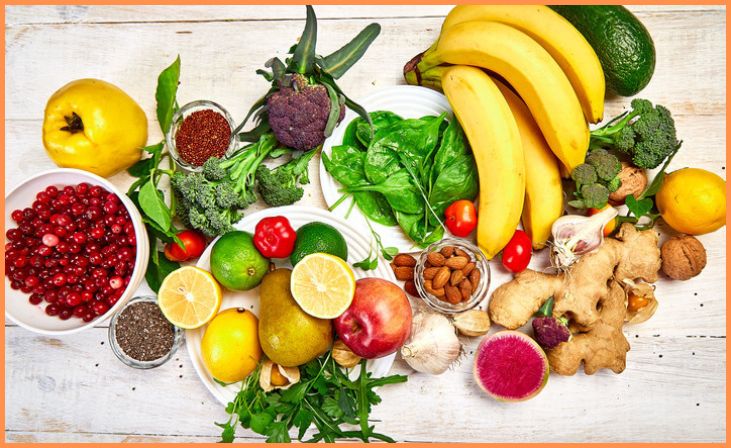
Ensure peak athletic performance with a focus on essential vitamins and minerals. Support bone health and overall well-being by maintaining adequate levels of vitamin D, calcium, iron, and magnesium. Incorporate a variety of colorful fruits and vegetables to obtain a spectrum of vitamins and minerals. Leafy greens, citrus fruits, and lean proteins are rich sources. Consider supplements if needed, but prioritize whole foods. Vitamin C aids in collagen formation, supporting connective tissues, while iron is vital for oxygen transport. Individualize intake based on dietary preferences and activity levels. A diverse array of nutrients enhances immune function, boosts recovery, and sustains the demands of athletic endeavors.
Limit Processed Foods
Enhance athletic performance by minimizing processed foods in your diet. These often contain added sugars, unhealthy fats, and artificial additives that can compromise energy levels and overall health. Opt for whole, nutrient-dense foods like fruits, vegetables, lean proteins, and whole grains. Processed foods can lead to energy crashes, inflammation, and suboptimal recovery. Read food labels and choose minimally processed options to reduce sodium and preservative intake. Cooking at home allows better control over ingredients. By limiting processed foods, you promote better digestion, maintain stable energy levels, and support long-term health, aligning with the nutritional needs of a high-performing athlete.
Individualized Nutrition Plans
Maximize performance by tailoring your nutrition plan to individual needs and goals. Consult with a nutritionist or dietitian to create a personalized strategy based on your activity level, body composition, and specific requirements. Consider dietary preferences, intolerances, and cultural influences to make the plan sustainable. Adjust macronutrient ratios, portion sizes, and timing to align with your training schedule. Regularly assess and adapt the plan as your goals evolve. Individualized nutrition enhances energy levels, supports recovery, and ensures you meet nutritional demands. This personalized approach fosters long-term adherence and overall well-being, addressing the unique requirements of your body and optimizing athletic performance.
Recovery Nutrition
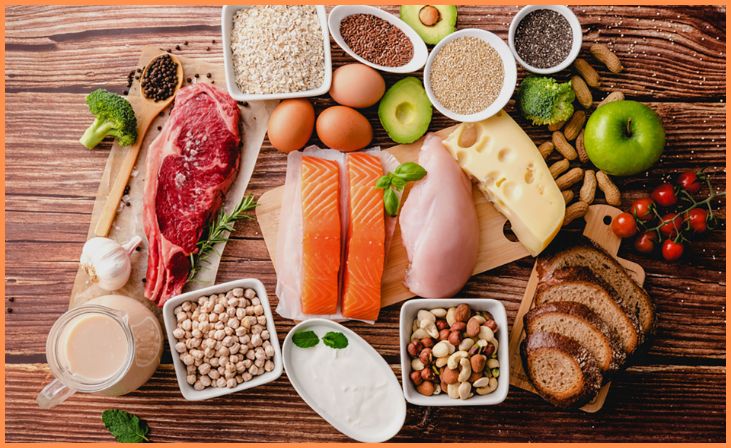
Elevate recovery with strategic nutrition post-exercise. Consume a mix of protein and carbohydrates within 30 minutes to replenish glycogen stores and initiate muscle repair. Optimal recovery foods include lean proteins, whole grains, and fruits. Consider a protein-rich snack or shake for convenience. Hydrate well to replace fluids lost during exercise. Include anti-inflammatory foods like berries and leafy greens to reduce muscle soreness. Individualize recovery nutrition based on exercise intensity, duration, and personal preferences. Adequate nutrition accelerates recovery, reduces fatigue, and prepares the body for subsequent training sessions. Prioritize this post-exercise window to enhance overall performance and maintain peak physical condition.
Conclusion
In conclusion, the nexus between optimal nutrition and athletic excellence is undeniable. Athletes who prioritize balanced, personalized nutrition gain a formidable advantage in performance and recovery. Consistency in applying these principles, along with continual self-assessment, forms the cornerstone of enduring success. As athletes navigate their unique journeys, the resonance of disciplined nutritional choices echoes in every stride, jump, and victory. Fueling the body strategically is not merely a regimen; it is a commitment to unlocking the fullest potential within, ensuring that each athletic endeavor becomes a testament to the power of mindful nutrition.
FAQs
Nutrition is vital for top athletes as it directly influences energy levels, recovery, and overall performance. Proper fueling enhances endurance, strength, and mental focus, contributing to sustained excellence in training and competition.
Pre-workout nutrition should include a balance of carbohydrates, proteins, and fats. Timing is crucial, with a focus on easily digestible foods to provide sustained energy. Hydration before exercise is also essential.
Staying hydrated during exercise is critical for maintaining performance and preventing dehydration. Adequate fluid intake helps regulate body temperature, supports nutrient transport, and ensures optimal muscle function.

